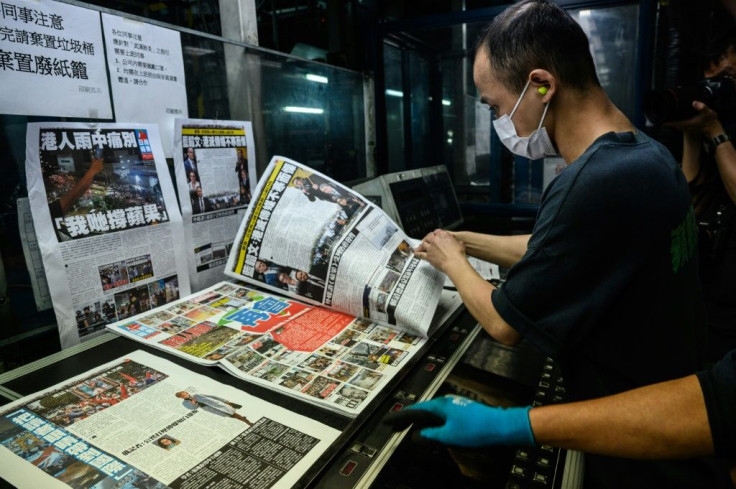US Says China Spends Billions On Global 'Information Manipulation' Drive Annually

KEY POINTS
- Some of the issues that Beijing allegedly suppresses are those about the South China Sea and Taiwan
- Beijing's promotion of "digital authoritarianism" and other elements could "reshape" the world's information space, as per the State Department
- China's CAC implemented a "rectification" campaign on social media earlier this year
The United States has released a new special report accusing China of global "information manipulation" allegedly to cement its preferred narratives and avoid getting criticized for its conduct.
"The PRC (People's Republic of China) spends billions of dollars annually on foreign information manipulation efforts," the U.S. Department of State said in its Global Engagement Center Special Report released Thursday.
In particular, Beijing makes use of "false or biased information" to promote positive views of the government and the Chinese Communist Party (CCP), the report added.
"At the same time, the PRC suppresses critical information that contradicts its desired narratives on issues such as Taiwan, its human rights practices, the South China Sea, its domestic economy and international economic engagement," it said further.
Information manipulation refers to "the coordinated use of social or traditional media to manipulate and influence public debate" by intentionally spreading or amplifying distorted, false or misleading information, according to transatlantic national security advocacy group Alliance for Securing Democracy (ASD).
China's information manipulation strategies allegedly include promoting digital authoritarianism, exploiting its bilateral partnerships with different countries, combining co-optation and pressure, leveraging censorship and propaganda and controlling Chinese-language media. The State Department said these elements "could enable Beijing to reshape the global information environment" in various aspects.
The report further accused the Chinese government of acquiring stakes in foreign media through public and private means while also sponsoring online influencers. Moreover, Beijing allegedly invested in African digital television services and satellite networks to further its media manipulation goals.
In terms of constraining global freedom of expression, Beijing has allegedly taken measures against companies that it deems have challenged its preferred narratives on critical issues such as the Uyghur community in Xinjiang.
China's desire to control narratives was manifested in May when the Cyberspace Administration of China (CAC) said it had deleted 1.4 million social media posts as part of its "rectification" campaign. The CAC also permanently shut down 67,000 accounts. Some 930,000 accounts either had all of their followers removed or their profit-making privileges canceled.
The U.S. report warned that if left unchecked, Beijing's information manipulation strategies could lead to a future where China can play a significant and "often hidden" role in determining the print and digital content in developing countries.
This is not the first time China has been accused of information manipulation. In 2021, Sarah Cook, senior advisor for China, Hong Kong and Taiwan at non-profit Freedom House, wrote that China's manipulation of global content, including on social media, was at an "unmatched scale."
A 2019 report by think tank RAND also branded China, along with Russia, as a "leading author" of "hostile social manipulation," which employs targeted social media campaigns, cyberbullying and harassment of individuals, distribution of conspiracy theories and "sophisticated forgeries" against a target state.
© Copyright IBTimes 2025. All rights reserved.






















